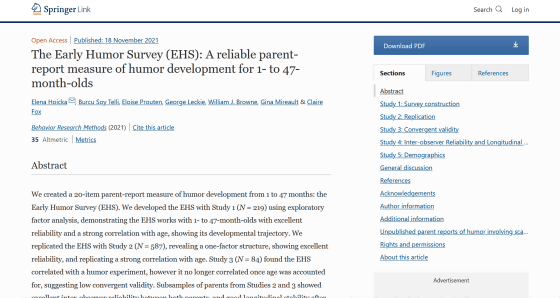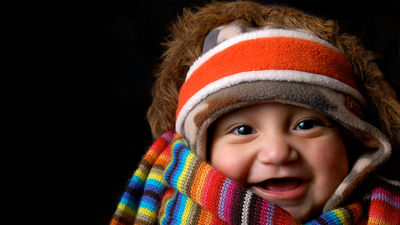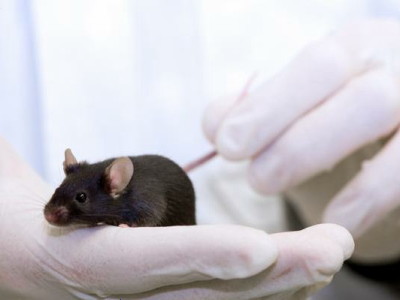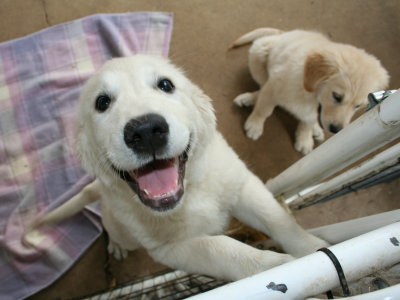How long does a child understand 'humor' after birth?

Even babies who are too small to speak can have some sense of humor or laughter, such as laughing when an adult does something strange or making funny movements on their own. According to a study conducted by an international research team led by the University of Bristol in the United Kingdom, 'Children correctly understand certain humor as humor at the earliest in the first month of life, and develop a sense of humor as they grow up.' The result of is shown.
The Early Humor Survey (EHS): A reliable parent-report measure of humor development for 1- to 47-month-olds | SpringerLink

Scientists capture humor's earliest emergence in young children
https://medicalxpress.com/news/2021-11-scientists-capture-humor-earliest-emergence.html
Having a sense of humor and laughter is important for coping with stress and making friends, but little research has been done on how human humor develops. Therefore, the research team created a 24-questionnaire called 'Early Humor Survey (EHS)' that asks parents about their baby's sense of humor, and 671 children recruited from the United Kingdom, the United States, Australia, and Canada. I asked my parents to complete the questionnaire.
Analysis of the responses showed that some babies correctly understood certain humor as early as 1 month old, and an estimated 50% of babies had a sense of humor as early as 2 months old. Turned out. In addition, babies not only enjoy the humor that adults set up and imitate what adults say, but also develop their own ability to generate humor from an early stage, with an estimated 50% of babies by 11 months of age. I also found that I acted in a way that made me feel some kind of humor. The baby, who once learned to create humor, repeatedly said and did interesting things.

The research team identified 21 possible types of humor for the children surveyed and investigated which types of humor they had at each stage of growth. As a result, babies under the age of 1 tended to appreciate physical, visual, and vocal humor. This type of humor includes peek-a-boo, tickling, funny faces, unusual behaviors, funny voices, chasing, and using things in strange ways (such as putting a cup on your head).
In addition, the one-year-old child correctly understood the kind of humor that can be reacted by other people, such as making fun of someone, taking off clothes, scaring someone, humor about the toilet, and imitating animals.
As a two-year-old, he became more interested in linguistic humor, and became more interested in wrong labeling and wrong concepts (such as lies such as 'dogs cry' mo '). The research team also says that they have started to take actions that make someone interesting and aggressive humor such as pushing someone.
He found that as a 3-year-old child, he developed a more linguistic sense of humor, became amused by socially inappropriate words, and began to understand puns and jokes.

'Our findings show that humor is a complex development process in the first four years. The universality and importance of humor in children and adults,' said Elena Hoicka, associate professor of education at the University of Bristol. Given that, a tool to determine not only the emergence of humor itself, but also how humor first develops, in order to understand how humor helps infants' cognitive, social, and mental functions. It is important to develop. '
Related Posts:
in Science, Posted by log1h_ik







